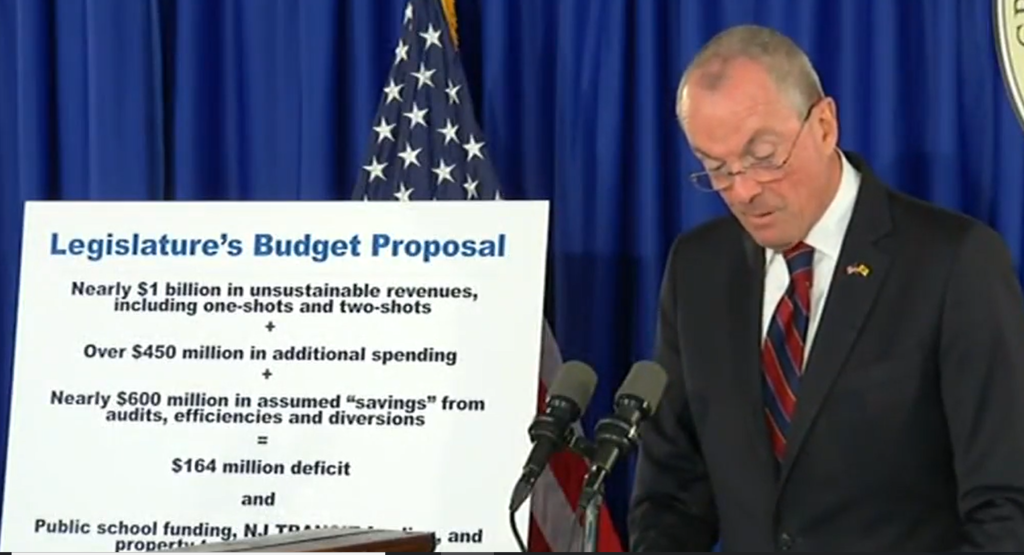NJ Agencies Awarded $4.7 Million to Improve Black Infant, Maternal Mortality

TRENTON - In an effort to improve health outcomes among black infants and mothers in New Jersey, six maternal and child health agencies across the state have been awarded $4.3 million in grant funding as part of the Department of Health’s “Healthy Women, Healthy Families” initiative.
“Through the Healthy Women, Healthy Families Initiative, Dr. Elnahal and the Department of Health are working to help community-based programs improve services and provide quality access to perinatal care to reduce disparities in birth outcomes,” said First Lady Tammy Murphy. “I find it shameful that race persists as a factor in maternal health and infant mortality rates in New Jersey. We must continue to address the need for greater access to quality healthcare and services for our expectant mothers, especially for women of color. This grant funding represents a firm commitment on behalf of the administration to improve healthier outcomes for mothers and their babies.”
In addition to the “Healthy Women, Healthy Families” funds, the Department is devoting $450,000 to implement a doula pilot program in municipalities with high black infant mortality rates. A total of $280,000 will go to the Statewide Parent Advocacy Network (SPAN) to implement a doula pilot program in Newark, and $120,000 will go to Children’s Futures to cover Trenton. An independent evaluator will be paid $50,000 to evaluate the effectiveness of the doula program in reducing the likelihood of certain birth and delivery/labor outcomes such as cesarean births.
While the overall infant mortality rate in New Jersey is lower than the national rate (4.7 per 1,000 live births versus 5.9 per 1,000 live births in 2015), the disparity between white (3.0 per 1,000 births) and black infants (9.7 per 1,000 births) is alarming. The infant mortality rate for black infants is more than three times that of white infants, and black women are more than four times as likely to die from pregnancy-related complications as white women.
“It’s a tragic reality that race determines health outcomes for some New Jersey mothers and babies. Everyone — regardless of skin color — should be given an equal chance at a healthy, productive life,” Health Commissioner Dr. Shereef Elnahal said. “This is unacceptable, and we are confident these dollars will result in lives saved and results improved for families.”
A total of $4.3 million was split between six community-based grantees that were selected to implement innovative maternal and child programs in 12 regions, covering the entire state while targeting high-risk areas. Breakdowns include:
- $1,241,389 to The Partnership for Maternal & Child Health of Northern New Jersey (Bergen, Morris, Passaic, Union and Hudson counties; cities of Paterson and Jersey City)
- $684,904 to Central Jersey Family Health Consortium (Middlesex, Somerset, Hunterdon and Mercer counties; city of Trenton)
- $770,517 to Greater Newark Healthcare Coalition, Inc. (Essex County and the municipalities of East Orange, Irvington and Newark)
- $171,226 to Project Self-Sufficiency of Sussex County (Sussex and Warren counties)
- $1,112,969 to Southern New Jersey Perinatal Cooperative (Atlantic, Cape May, Salem Gloucester, Cumberland, Burlington and Camden counties; cities of Atlantic City and Camden)
- $299,646 to The Children's Home Society of New Jersey (Monmouth and Ocean counties).
Through a system that includes central intake, referrals and community health workers, grantees will provide preconception, prenatal, interconception and postpartum care and case management services; build partnerships with new, non-traditional community organizations; implement programs to improve pregnancy outcomes in high-risk populations; and address health disparities with the goal of reducing black infant mortality and increasing the number of healthy births.
The community programs will use a two-pronged approach: 1) county-level activities that focus on providing high-risk families and women of child-bearing age access to information and referrals to community services that promote child and family wellness and 2) municipal-level activities that will focus on black women of child-bearing age and link them to community supports, implementing specific black infant mortality programs, and providing education and outreach to health providers, social service providers and other community level stakeholders.
High-risk women include those with low-income and/or uninsured, women with chronic health conditions, women with multiple social or economic stressors, victims of domestic violence, individuals impacted by mental health issues, alcoholism and substance abuse, women with minimal social supports and women with unintended pregnancies. These women on average attend fewer prenatal visits and are more likely to experience adverse pregnancy outcomes. Their families are less likely to access consistent, comprehensive preventive and primary care services, and are less likely receive quality care.
Working collaboratively with the New Jersey Department of Children and Families for central intake in Salem, Gloucester, Cumberland, Middlesex, Somerset, Essex and Passaic counties, the ‘Healthy Women, Healthy Families’ Initiative will also rely on access to all evidence-based home visiting programs and early childhood resources.
In addition to “Healthy Women, Healthy Families” program, the Department plans to pursue two other statewide initiatives that specifically target black infant mortality: expanding access to 17-alpha hydroxyprogesterone, an injection that has proven to prevent pre-term births in certain women, and offering long-term, reversible contraception (LARC) as a contraception option for women who are interested across the health care delivery system, including the NJ Family Planning League.





